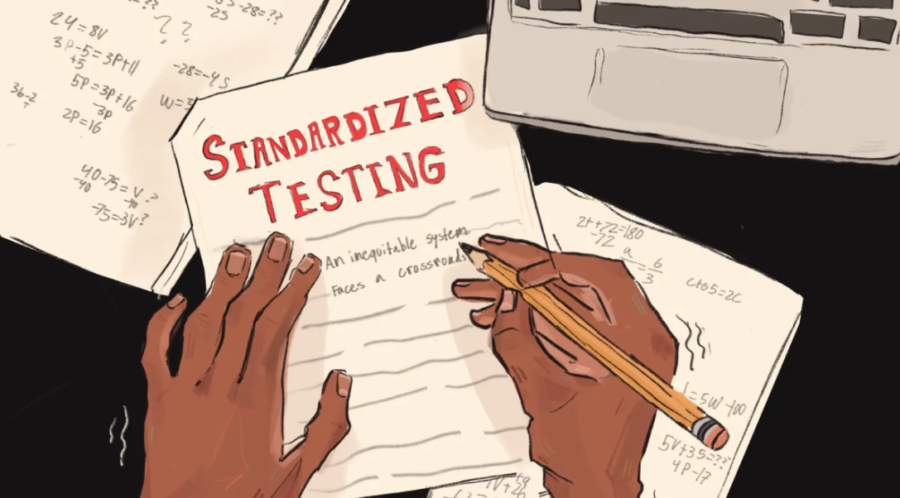Is Standardized Testing Unfair?
December 6, 2022
In the era of test-optional college admissions, many have called into question the efficacy of standardized testing in evaluating the intelligence of students. Supporters argue that standardized tests are the most objective measure of a student’s education, while opponents claim that standardized testing measures only a specific aspect of a student’s overall performance. As someone who has been taking standardized tests for almost ten years, I see standardized testing as an outdated and biased way of assessing students, with some sort of alternative being necessary to accommodate for the evolving needs of students.
In many ways, standardized testing is unfair in the way that it fails to accurately display the overall academic profile of students. As it stands, test scores are used to determine a student’s proficiency in a very specific subset of academic subjects—among which are often grammar, reading comprehension, math, and science. Many believe that scores serve as indicators of future success, but standardized tests fail to assess students in crucial areas such as creativity, problem solving, critical thinking, and artistic ability. When presenting test scores to colleges, for example, the academic success of students is gauged by their performance in this very limited selection of subjects, but these other areas are left unaccounted for. Of course, there are other metrics admissions are decided by, but many colleges consider standardized test scores to a significant degree. With that being said, the adoption of test-optional policies by colleges across the nation and the subsequent diminishing in power of these standardized tests is a trend that best serves the needs of students.
Beyond its limited capacity for holistic assessment, a much more pressing matter can be seen in the racist and eugenicist past of standardized testing. Its origins can be traced to the work of Carl Brigham, PhD, who designed aptitude tests for the Army during World War I to segregate soldiers by race. These tests—which falsely conflated intelligence with race—were later adapted to become the SAT, but the racial bias remained embedded in these assessments. To further explain this connection between standardized testing and institutional racism, W. James Popham, PhD, Professor Emeritus at the University of California at Los Angeles and former test maker, offers his perspective:
“Traditionally constructed standardized achievements, the kinds that we’ve used in this country for a long while, are intended chiefly to discriminate among students … to say that someone was in the 83rd percentile and someone is at 43rd percentile. And the reason you do that is so you can make judgments among these kids. But in order to do so, you have to make sure that the test has in fact a spread of scores. One of the ways to have that test create a spread of scores is to limit items in the test to socioeconomic variables, because socioeconomic status is a nicely spread out distribution, and that distribution does in fact spread kids’ scores out on a test.”
This firsthand analysis of the biases ingrained within standardized testing shows how, in many instances, these tests are designed to work against students rather than for them. In modern times, these socioeconomic disparities are increasingly visible as people continue to call out the discriminatory practices used by standardized testing companies, and they should.
Taking a stand against these companies and publicly calling attention to their predatory practices is one of the only ways to make waves of change, especially when it comes to corporate giants such as the SAT and ACT. As more and more students express dissatisfaction with standardized testing procedures in college admissions, schools have started to rely on standardized testing less for admissions decisions. This trend, which will hopefully continue in coming years, benefits students of all backgrounds, creating a more fair college admissions process nationwide.
Nevertheless, standardized testing currently presides as a deciding factor in the admissions process for many schools, regardless of how unfair it may be. It is important to be aware of the role standardized testing plays in determining our academic futures, especially as many of us gear up to take the ACT or SAT this winter and upcoming spring. Fairness aside, standardized testing exists as a tool for teachers, administrators, and admissions officers to evaluate students’ understanding of core concepts taught in most schools nationwide. Even so, standardized testing undeniably favors proficient test takers, meaning that a student’s foremost opportunity for doing well is to study the fundamentals of the test. Standardized testing is a game, and the best way to play is to develop an understanding of the test format and master each type of question. Best of luck!

















